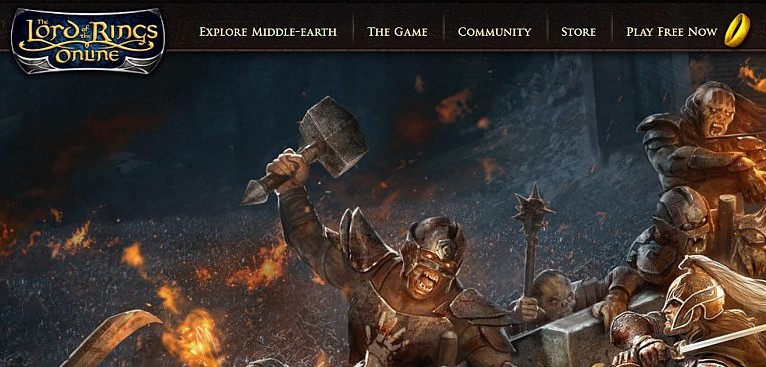
(photo from lotro.com )
Technology is rapidly evolving around us and has changed the way we live our lives. Social media has changed communication, online shopping has changed the market, and now video games have changed the way we experience storytelling.
When a book is read, before the cover is even open, the events have all been decided and the reader have no say in the process. This makes the story feel more passive and the reader is merely an observer.
Certainly, video games have been developed that put the person experiencing the story in charge of the action.
“I would slightly disagree, because there are so many great books and I don’t know if they could be replicated by a video game, but I agree that they represent a legitimate form of storytelling,” Associate English Professor, Francis Corby, said.
One example of this immersive story-telling technique is the thrilling murder mystery game “Heavy Rain” available on the Playstation 3.
A unique aspect of the game is that the player makes all the key decisions in the story. At that point it is no longer just a story, it is the player’s story.
Choices made in-game impact the narrative and the player decides what happens next. This connects the player to the story and forces them to think critically about what’s actually going on.
Another quality of “Heavy Rain” that adds to the story, is that there are no retries. If an incorrect choice or mistake is made, a character can actually die, and the game’s storyline continues as a direct result of the players choices.
When a character dies in the game, it forces the player to accept the consequences of their actions. When characters die in a novel it is simply something that the author decided.This gives the game an edge and adds to the tension of the story.
In the crime drama “L.A. Noire” you play detective, Cole Phelps, and the core gameplay is the interrogation scenes with the apprehended suspects.
The player must become a human lie detector and decide if the suspect is telling the truth based on the evidence collected, body language, and facial cues.
In a traditional detective novel, the reader must follow the characters thought process, but in “L.A. Noire” the player must rely on their own logic and instincts to find the truth.
No other game quite contains the idea of choice as a theme than the “Mass Effect” series. This game values choice over the traditional theme that the protagonist has to be the “good guy”. The player can make any choice they want and the game won’t condemn you for having a black hole for a heart and it doesn’t praise you for wearing a halo either.
These games have remained a successful genre with such titles like “Beyond 2 Souls”, which was released in October 2013 and “Mass Effect 3”, which was the final installment in the “Mass Effect” series, and debuted in Mar. of 2012. The formerly mentioned title “Beyond 2 Souls” sold an excess of a million copies in 2013, according to the official Quantic Dream english website.
Other titles that have a non-linear storytelling elements are “Indigo Prophecy”, “Eternal Darkness; Sanity’s Requiem”, the “Bioshock” series, “Catherine”, the “Fable” series, and “Clock Tower”.
Video games have come along way from “Mario Bros” on the Nintendo Entertainment System. They have become an art form and some have the ability to change the way people think. It is said that the pen is mightier than the sword, but in this case, the controller may be mightier than both.
Contact Eric at etwelch@lc.edu




